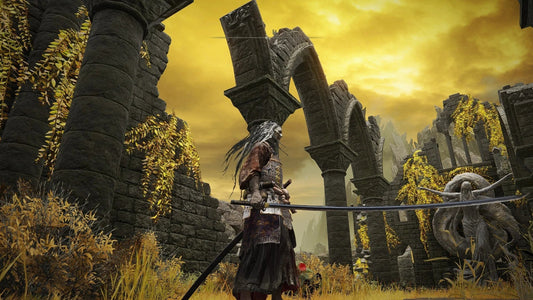
Rin Tohsaka and Sakura Matou: A Tale of Rivalry, Legacy, and Redemption
In the Fate/stay night universe, few relationships are as intricate and emotionally charged as that between Rin Tohsaka and Sakura Matou. Bound by blood yet separated by tragedy and circumstances, their dynamic weaves together themes of rivalry, legacy, and redemption. Both girls are heirs to powerful mage families, and each grapples with the expectations, trauma, and ideals thrust upon them. Despite their shared lineage, their paths diverge sharply, with one becoming a disciplined and driven mage and the other trapped in a cycle of suffering and darkness. This article explores the layers of Rin and Sakura’s relationship, their struggles with family legacies, and the path toward reconciliation that offers both characters a chance at redemption.
The Tohsaka and Matou Families: A Divided Legacy
At the heart of Rin and Sakura's story is the divide between the Tohsaka and Matou families, two of the three founding mage families of Fuyuki City. Each family has a unique approach to magecraft: the Tohsakas pursue power with refinement and discipline, while the Matous use harsh, invasive methods. When Sakura, Rin’s younger sister, is sent to be adopted by the Matou family, she is subjected to cruel training to turn her into a tool for the Matous’ success in the Holy Grail War. This traumatic upbringing sets Sakura on a path of emotional turmoil and darkness, distancing her from her sister and the life she once knew.
The decision to transfer Sakura was made by their father, Tokiomi Tohsaka, who chose to prioritize the strength of his bloodline over the emotional well-being of his family. This choice haunts both sisters, as Rin feels guilt over her sister’s fate, while Sakura endures years of torment and isolation. The family divide turns them from siblings into strangers, with Rin growing up as the “proper” Tohsaka heir while Sakura is shaped by the brutal Matou methods.
Rin Tohsaka: The Heir Who Bears Her Family’s Pride
Rin Tohsaka, as the eldest daughter and the remaining heir to the Tohsaka line, embraces her role with dedication and strength. Raised with the traditional values of her family, Rin is a disciplined and capable mage who embodies the Tohsaka legacy. Her drive for excellence pushes her to hone her skills for the Holy Grail War, where she intends to uphold her family’s name and ideals. Rin’s strength, intelligence, and independence make her a formidable competitor, one who pursues victory with integrity.
However, Rin’s composure and pride mask a more vulnerable side. She harbors guilt over her sister’s fate and often wonders what might have been had Sakura remained a part of her life. Though she maintains a stoic demeanor, Rin is deeply empathetic, particularly when it comes to those she cares about. This internal conflict between her duty as the Tohsaka heir and her love for Sakura adds complexity to her character, revealing a tension between her loyalty to family tradition and her suppressed longing for reconciliation with her sister.
Sakura Matou: A Soul Shaped by Suffering
Sakura’s journey is one of hardship and survival. While Rin was raised in the supportive Tohsaka household, Sakura grew up in the Matou family under the abusive and sadistic guidance of Zouken Matou. Forced to undergo painful magical modifications and subjected to emotional isolation, Sakura’s life is defined by darkness and suffering. These traumas manifest as a deeply troubled personality and a struggle with self-worth, as Sakura battles the resentment and anger that have built up over the years.
Yet despite the Matous’ cruelty, Sakura retains a gentleness and compassion that often surprises those around her. This duality in her character—her kindness and inner turmoil—makes her a tragic yet resilient figure. Her suppressed resentment toward Rin, combined with feelings of inferiority, creates a sense of rivalry and envy. Sakura believes she is undeserving of love and happiness, making it difficult for her to accept the care shown by people like Shirou Emiya. However, as the Holy Grail War progresses, Sakura’s path to redemption becomes clearer, as she confronts her past and seeks a way to free herself from the control of her family’s dark legacy.
Rivalry Rooted in Resentment and Circumstance
The rivalry between Rin and Sakura is a complex web of emotions—resentment, envy, admiration, and guilt. For Rin, Sakura represents a hidden regret, a painful reminder of the sibling bond that was severed by their family’s decision. Though Rin is often portrayed as confident and assertive, her interactions with Sakura reveal a more uncertain, vulnerable side. She longs for a connection with her sister but is unsure how to bridge the years of distance and misunderstanding.
From Sakura’s perspective, Rin embodies a life she was denied. Raised under the harsh Matou training, Sakura views Rin as the favored child who was allowed to live a relatively privileged life. This resentment is complicated by her admiration for Rin’s strength and confidence—qualities Sakura believes she herself lacks. Their interactions are tinged with tension, as Sakura’s envy fuels her bitterness while Rin’s guilt keeps her from fully reaching out.
In the Holy Grail War, these emotions come to a head as the sisters find themselves on opposing sides, each with a different reason to fight. Despite their animosity, both long for understanding and closure, realizing that their rivalry stems not from hatred but from the unresolved pain of their past.
The Path to Redemption: Healing Old Wounds
As the Holy Grail War intensifies, so does the sisters' need for reconciliation. Rin’s empathy and concern for Sakura eventually lead her to confront the truth about her sister’s suffering under the Matou family. This realization forces Rin to set aside her pride and confront the family legacy that contributed to Sakura’s trauma. By acknowledging Sakura’s pain, Rin takes the first step toward mending their broken relationship, demonstrating her willingness to protect Sakura at any cost.
Sakura, too, finds a path to redemption as she begins to confront the darkness within her and embrace her right to happiness. Through her connection with Shirou and her eventual understanding of Rin’s true feelings, Sakura begins to shed her self-loathing and resentment, accepting that she deserves a life free from the shadows of her past. The sisters’ reconciliation offers both a sense of healing and release, as they move beyond the roles imposed upon them by their families and discover the strength of their bond.
Legacy and the Power of Forgiveness
The story of Rin and Sakura is ultimately a tale of forgiveness—of oneself and of each other. Rin’s journey allows her to question the traditions of the Tohsaka family and redefine what it means to be a mage, not as someone bound by rigid expectations but as someone who values compassion and empathy. Sakura, on the other hand, learns to forgive herself for her past, accepting that she is worthy of love and redemption despite the scars left by her upbringing.
By forgiving each other, Rin and Sakura create a new legacy, one that is not dictated by the rivalry and bitterness that plagued their past but by a shared desire for freedom and peace. Their story serves as a reminder of the resilience of sibling bonds, showing that even the deepest wounds can be healed with understanding and love.
Conclusion
Rin Tohsaka and Sakura Matou’s journey from rivalry to reconciliation is one of the most compelling narratives in Fate/stay night. Defined by themes of legacy, family, and personal transformation, their relationship embodies the struggle between obligation and empathy, between resentment and forgiveness. In the end, Rin and Sakura’s story is not just about rivalry but about the enduring bond of sisterhood and the power of redemption. Through their struggles and ultimate reconciliation, they create a legacy of healing and compassion, transcending the limitations imposed by their families and forging a new path toward freedom and acceptance.




